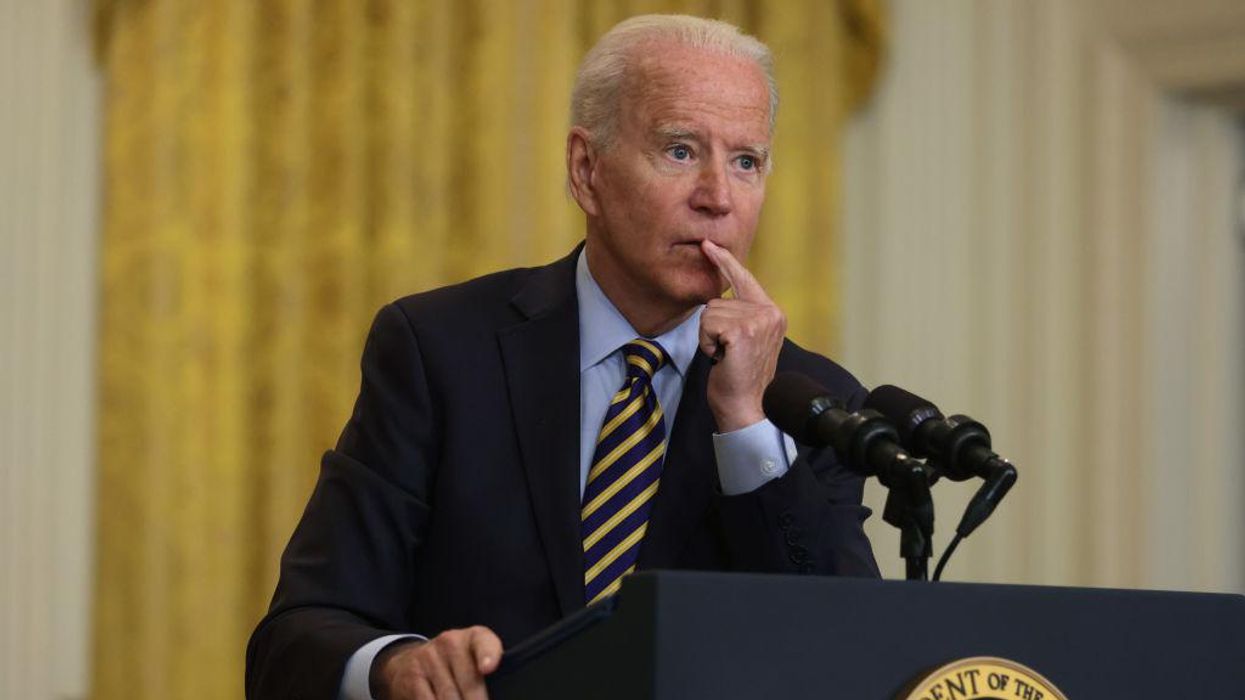
Alex Wong/Getty Images

President Joe Biden selected Kamala Harris to be his running mate because she's a black woman.
How do I know this? Biden said so. A year ago, when considering the future vice president, Biden bowed to the identity gods, stating he'd only consider a black woman for the vice presidency. His decision drew attention away from Harris' actual qualifications and probably aggravated Elizabeth Warren and Amy Klobuchar, two of her more senior Senate colleagues.
Rachel Nichols got herself entangled in a similar drama when she expressed her belief that ESPN promoted Maria Taylor to host of NBA Countdown because Taylor is black. Why does Nichols believe that? Because Taylor and countless other black ESPN employees keep publicly and privately demanding that the network hire and promote more black people.
Identity politics rule and divide America. No one should be surprised that the Worldwide Leader in Sports suffers from the same obsession as the White House, academia, Hollywood, our military, and seemingly every other American institution.
It makes perfect sense for Rachel Nichols, a white woman, and Maria Taylor, a black woman, to be locked in a nasty racial tug of war playing out on the pages of the New York Times, the paper of record for identity politics.
The Times released an article on July 4 exposing the rift between Nichols and Taylor, two of ESPN's highest-profile employees. Last year, Nichols was accidentally captured on camera commenting on Taylor's latest promotion. The network awarded Taylor the coveted job of hosting its NBA pregame show. Nichols thought that job belonged to her. She expressed her frustration to a LeBron James associate.
I listened to the audio clip placed in the New York Times story. Nichols said nothing wrong. I don't expect her to be happy about being replaced, especially if she feels part of the reason is unrelated to talent. We can't have functioning workplaces if even the mildest expressions of frustration can turn into an organizational scandal. I also understand why Maria Taylor and her supporters are upset. Many athletes and sports journalists paint this as another instance of white people claiming to be allies in public but privately undermining their black colleagues.
This story is only newsworthy and interesting because it involves public personalities who fit the race and gender narrative that drives corporate media stories.
But there's another issue at play here, one that goes far beyond ESPN and professional sports. It is our current obsession with personal identity. Nichols' comments were actually less about Taylor and more about ESPN and the perception that it was fast-tracking Taylor because of its poor record on diversity in the past.
That perception fits perfectly into a cultural moment in which the focus on identity is not merely about ways in which Americans are different. It is mainly used to explain power dynamics that make some groups of people victims of systemic injustice and others perpetrators of oppression. The death of George Floyd caused many companies to look for ways to conciliate their black employees and prove to the public that they were supportive of the Black Lives Matter movement. Public commitments to hire and promote more black people, especially black women, accomplished both goals.
Joe Biden succumbed to the exact same pressure as ESPN. Biden's decision to put Harris on the Democratic ticket was welcomed by the politicians and activists who had been pressuring him to do so. Did it improve America's race relations? That's up for debate. What's not up for debate is that Biden's move made race and sex — not political ideology, popularity, or strategic value — the two most important qualifications for all prospective candidates.
Joe Biden could have publicly committed to picking the most qualified person and still selected Harris. Instead, he folded under public pressure. So do most of our elite institutions. The stain of being labeled racist, sexist, homophobic, or transphobic causes them to make decisions that are more about self-preservation than social good.
The consequences of bowing to identity extortion aren't confined to our institutions. There is also an "identity stigma" on the people who receive these opportunities, regardless of their actual qualifications. If the people providing access to jobs spend all of their time talking about allocating resources based on race, sex, and gender identity, no one should be surprised by pushback from anyone who feels they are being denied opportunities based on characteristics outside their control.
As a father, the lesson here is clear. If I treat all of my children poorly, they will grow up to resent me. If I treat one better than the others, they will grow up to resent each other. America is rife with resentment.
Our institutions would benefit from focusing more on merit and qualifications than personal identity. We learn and grow from being exposed to different people with different experiences, yet skin color and sex don't tell you everything you need to know about a person. Organizations demonstrate their commitment to equity by consistently applying the same standards of performance and evaluation to all employees, not by assuming there should be a predetermined number of people of a specific demographic in every position. Doing so may have made the controversy surrounding Maria Taylor and Rachel Nichols a non-story.
Hopefully we all learn that lesson.